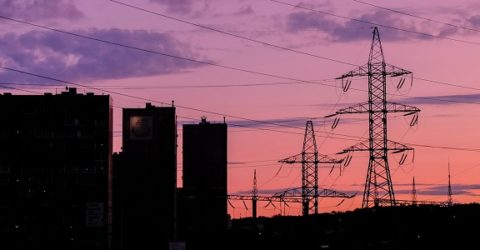Could power-cuts force our homes offline this winter?
The relationship between power cuts and broadband access might not be obvious, but it could be significant this winter.

Amid the muted congratulations following Liz Truss’s confirmation as Prime Minister last week, there was a great deal of media focus on the in-tray awaiting her.
To describe that in-tray as substantial would be an understatement. Not since Margaret Thatcher arrived in No. 10 has a new PM faced such a daunting to-do list.
Foremost among the new PM’s priorities will be the looming energy crisis, for which capping consumer bills at £2,500 is a temporary salve – but not a solution to supply-side issues.
Meanwhile, the connection between power cuts and broadband access might not seem immediately obvious, until you remember routers won’t work without power.
As the pandemic demonstrated (and reinforced), we are more reliant on internet connectivity than at any point in the World Wide Web’s three-decade history.
Periodically being without electricity could adversely affect everything from our health to our productivity.
But how likely is this scenario? And how could you stay online if the lights start going out?
Cut out and keep
The first thing to note is that power cuts wouldn’t be indiscriminate.
Even in the (literal) dark days of the Three-Day Week, households knew national television broadcasts went off at 10.30pm, for instance.
Businesses were warned when they would – and wouldn’t – have access to electricity, allowing them to organise shift patterns and minimise interruptions to part-completed manufacturing tasks.
If there isn’t enough electricity for the whole population this winter, expect a modest element of rationing at peak times of day.
It’s unlikely to affect the whole population, and any impending outages would be publicised well in advance.
The second thing to note is that the UK is less exposed to the consequences of the war in Ukraine than our European neighbours.
We have a strong renewable energy base, while three coal-fired power stations originally scheduled for decommissioning later this month are remaining online until next year.
The UK has five nuclear power plants, four large hydroelectric power stations, healthy domestic gas yields and a profitable (if diminishing) North Sea oil repository.
Wind turbines, solar farms and other renewables account for far more of the UK’s electricity generation than gas, which is why the Government is keen to decouple electricity and gas prices.
Nonetheless, if the lights do go off, home broadband will go with them…
The power and the story
Domestic broadband routers don’t work without electricity, in the same way that the appliances they power require electricity.
If your power goes off, WiFi and Ethernet-powered devices will immediately cease to work.
However, power cuts and broadband access can be simultaneous.
Phones and tablets should automatically switch to mobile networks, which will be protected from power cuts due to their importance.
Keep your phone charged, and you’ll retain an element of internet access via 5G or the slower 4G network.
Even laptops and tablets which aren’t connected to a mobile network will continue to work offline.
If you need to keep a PC or other essential device connected, a mobile dongle or MiFi hub doesn’t need mains power to connect to the mobile network.
(Remember that mobile data is expensive, so it should be used sparingly, or for essential devices only.)
As well as being relatively short-lived, power cuts are also likely to be regional. Neighbouring towns and counties might not be offline when yours is.
For instance, temporary power cuts across south-west Scotland could be mitigated by a day trip across the border to Carlisle, where the lights may be staying on.






